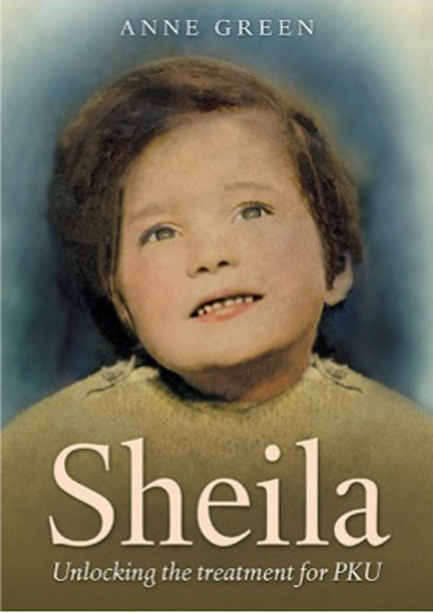
As you open the pages of Sheila, consider the lives of Cameron, Taila, Louise and Tom, four young people whose phenylketonuria (PKU) was successfully treated at Birmingham Children's Hospital. One is a medical student; another reads theatre arts; the third entered the teaching profession and the fourth lectures at universities and creates films. They owe their health – and consequently, in some measure, their success – to Sheila Jones, her mother, Mary, and her clinicians, as expounded upon in this inspiring and emotionally charged text that explores the origins of the heel-prick test and the development of the low-phenylalanine diet that now treats PKU successfully.
Former consultant biochemist Professor Anne Green traces the life of the eponymous character, Sheila, who spent her initial years in an impoverished but loving home and it is here that we meet Mary, Sheila's mother, who insisted on investigation to determine the cause of her daughter's challenging behaviour. Her consequent diagnosis was one of the first in the UK, and in 1951, she was the first patient treated with an experimental diet that sought to treat the phenylalanine excess now recognised as a fundamental cause of PKU.
The tale then tours the experimental science and methodology of the clinicians involved in the development of the low-phenylalanine diet. With the diet's introduction providing some benefit to Sheila, we continue to see the tenacity of a determined mother to find a remedy for her daughter's condition, embarking on a gruelling weekly journey to the Children's Hospital and back home carrying Sheila and the two litre Winchester bottle containing the experimental diet.
The book expands on the earlier history of Birmingham Children's Hospital and on the early development of the PKU low-phenylalanine diet, explaining the science in an accessible way for the layperson, as well as clarifying the challenges involved in such processes. The book also outlines the continued development of treatments for PKU in the time since, and considers briefly recent developments of intellectual disability in-patient services.
Throughout all this, the central story remains clear – the tale of a girl born in poverty, living through difficulty, who with the love and determination of her mother and the efforts of professionals became a pioneer in developing the treatment for PKU, and enabling subsequent generations of people with PKU to live relatively normal lives since. This would be inspiring to medical undergraduates, psychiatric trainees, trainee biochemists and medical historians alike.




eLetters
No eLetters have been published for this article.